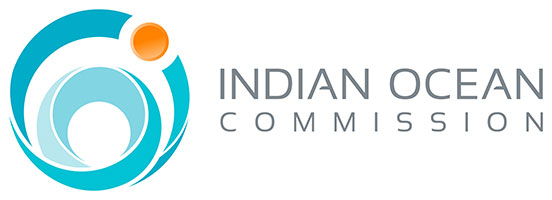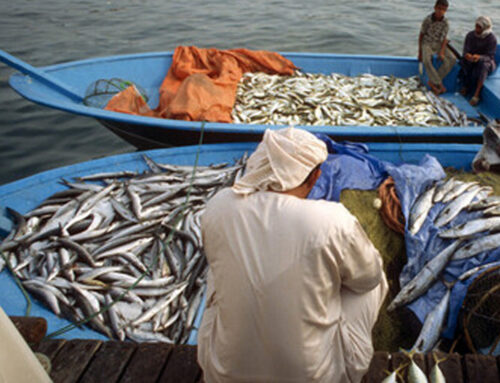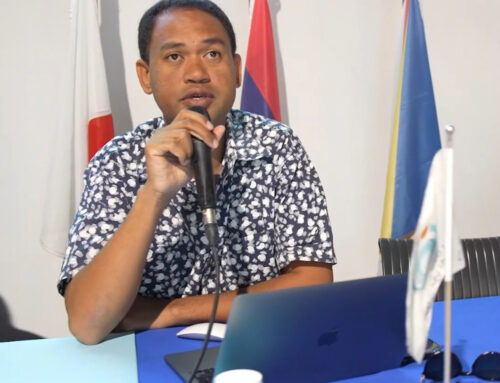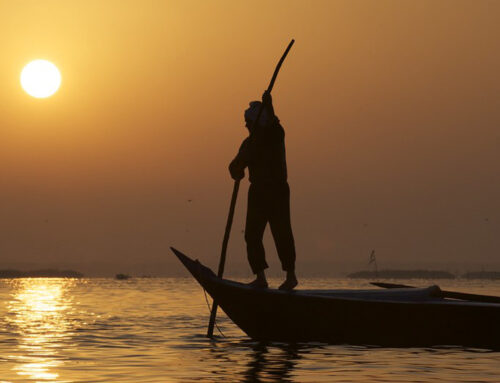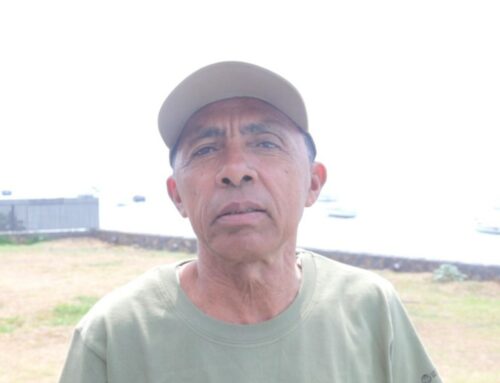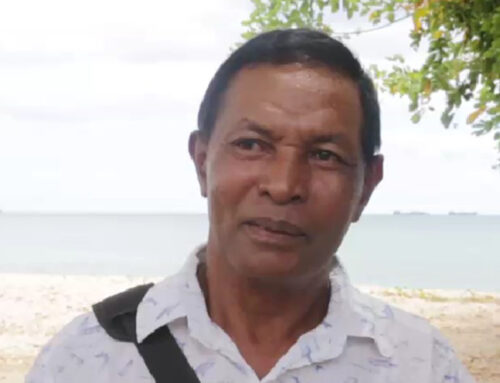Born in the coastal village of Anse Raffin in Rodrigues, Dalila Hall had always been attracted by the sea. After completing her studies, she chose to embrace her passion and embark on a fishing career. Now a mother of four, she is proud of the profession that has shaped her into the woman she is today.
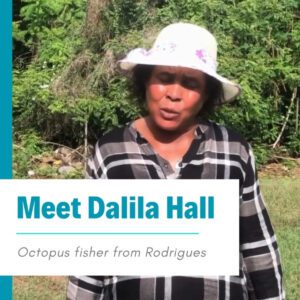 A difficult, but rewarding job
A difficult, but rewarding job
Being a fisher is not easy, and Dalila knows it: getting up early in the morning, bringing the right tools, wearing the right outfit to be at large in the sea… Yet, Dalila finds this job gratifying. Fishing octopus – locally called “ourites” – enables her to support her family and contribute to the local economy.
Although fishing has been long perceived as a men’s job, Dalila is grateful to her colleagues:
“I feel equal to the male fishermen, or even women working in offices. As far as I’m concerned, the profession knows no gender. As a fisherwoman, I feel that this profession is a pillar of society.”
Pollution gets in the way
Dalila and her colleagues firmly condemn pollution as a real scourge for the marine ecosystem.
They are all aware of the importance of preserving the environment to ensure the sustainability of their activities. The fishermen of Rodrigues are adamant: fishing must be conducted in an environmentally-friendly way to ensure sustainable, high-quality production.
Dalila, like most Rodriguan fishermen, does not use any chemicals and practices healthy methods that preserve nature.
A role model for women!
Despite the challenges she may face, the ‘ourite’ fisherwoman never loses heart and keeps on working with passion and pride. She urges all women in the Indian Ocean, whether Malagasy, Rodriguan, Mauritian, Réunionese, Seychellois or Comorian, to join the fishing world and follow their passion.
After all, fishing is a profession that can be practiced by anyone, regardless of gender!
